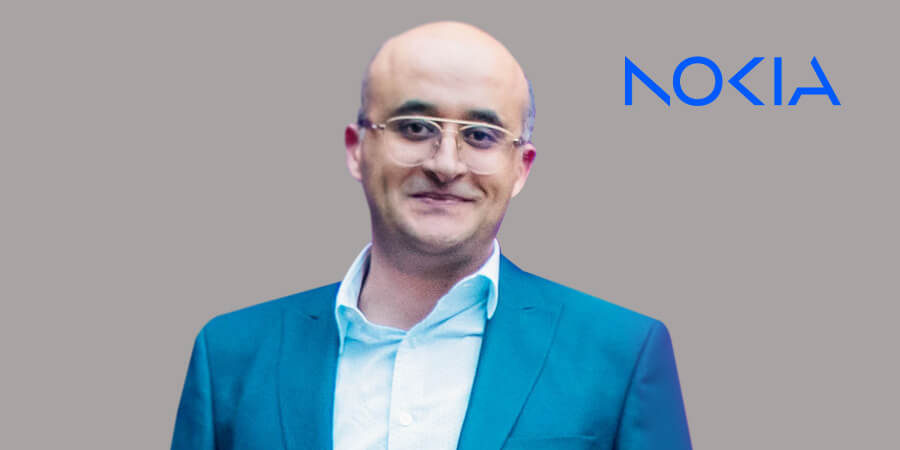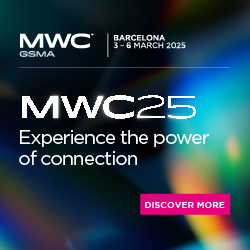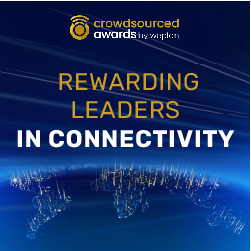In an exclusive interview, Mustapha Salah, the Head of Mobile Networks for Central, West, and East Africa at Nokia, discusses the evolving mobile landscape in the region. With mobile technology driving economic and social development, Mr. Salah explores key trends, Nokia's innovative solutions for regional challenges, and strategies to boost connectivity and narrow the digital divide. He also emphasizes Nokia's commitment to integrating ESG initiatives for sustainability across Central, West, and East Africa.
What are the main mobile trends and dynamics you foresee in your region?
The Communication Service Providers (CSPs) in our region are heavily investing in data growth, leveraging spectrum efficiency, and focusing on high-capacity layers. They're promoting new technologies like Massive MIMO and 5G, which are crucial for making data more affordable. This investment is essential for bridging the gap caused by exponential data demand, improving the quality of service, and introducing advanced technologies like AI/ML and gaming to the end-users.
However, the region is also facing significant challenges due to energy price inflation, currency devaluation, and overall economic instability in key markets such as Nigeria, Malawi, and Angola. These factors have created operational and capital expenditure challenges, limiting operators' spending capabilities. As a result, there's a strong emphasis on cost optimization initiatives and increased collaboration with TowerCo’s and vendors to manage cost exposure.
Connecting the unconnected is also a top priority for most CSPs. This effort is being supported by governments and various programs aimed at connecting remote areas with data services, which is crucial for economic growth, ICT development, and security in many sub-Saharan countries.
What innovations is Nokia bringing to address some of the region's challenges?
Nokia is committed to providing customized solutions to help customers in Central, West, and East Africa overcome their unique challenges. We are doing this through implementing more efficient and adaptive energy consumption solutions based on AI/ML and cognitive tools and utilizing the latest chipset technologies and lean product footprints. Nokia also offers adaptive and flexible financial models to create attractive investment opportunities for various telecom investors.
Furthermore, we provide robust enterprises, Service Provider as a Partner (SPaaP), and private network solutions that help CSPs and investors achieve efficient network usage and an adequate return on investment (ROI).
What strategies and services is Nokia deploying to boost connectivity and bridge the digital divide in your region?
Nokia is taking several strategic steps to enhance connectivity and bridge the digital divide.
Our mobile network solutions offer a diverse portfolio of business options, providing telecom and ICT players with a range of investment choices. These include flexible financing options, neutral host solutions, radio-as-a-service, and solution-as-a-service models.
With an increased focus on rural connectivity, we offer one of the most efficient and scalable rural connectivity solutions. These solutions have been successfully deployed in numerous African countries and globally, ensuring affordability and scalability.
Nokia employs highly efficient delivery processes through our extensive presence across the region and our global delivery centres, which are available 24/7. Our delivery processes adhere to the latest digitalization and automation standards, with AI/ML serving as a cornerstone of these processes.
How does Nokia integrate ESG initiatives to reduce its ecological impact and promote sustainability in its operations, particularly in Central, West and East Africa?
At Nokia, we have five key strategic focus areas: Environment, Industrial Digitalization, Security and Privacy, Bridging the Digital Divide, and Responsible Business. In this region, we actively promote these areas through various initiatives. These include collaborating on UN-Woman programs, where we work closely with UN-Women in countries like Nigeria and Kenya to support gender equality and empower women through technology.
We also have a big focus on rural connectivity with clean energy and partner with operators to promote rural connectivity using clean energy solutions, facilitating technological advancement in these communities.
Security and privacy are always at the core of what we do, and we ensure a high level of security and privacy from design to delivery, maintaining global standards and implementing them in the region.
We also pride ourselves on being recognized as one of the most ethical companies in the world for eight consecutive years. This recognition underscores our commitment to responsible business practices and sustainability.
Through these initiatives, Nokia aims to minimize its ecological footprint, promote sustainability, and drive positive change in the communities we serve.








